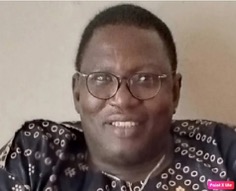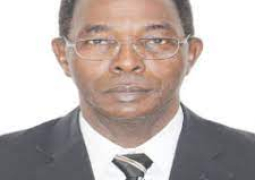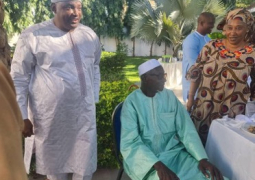
Until now much of the literature has concentrated on the virtues of presidential term limits and argued for their existence or even for an obligation to impose on them. The position by the GFA political party has been following to a large extent by observation. Tine new draft constitution, which has argued for the Gambians wide adoption of limits on the number of terms a president, may serve. Even more emphatically, in the past, all opposition in the Gambia debated but did not reach agreement on a proposal to adopt the country’s obligation to adopt term limits.
Nonetheless, there has been considerable resistance to attempts to impose or tighten term limits. Moreover, even when term limit changes, it poses threats to peace. There is an apparent institutional reluctance to interfere too vigorously. Like other countries. The EOWAS is sensitive to the need of broad support of its members and to arguments that it should not interfere in domestic matters. Against this background, this I suggests that the debate on term limits should be situated in an approach to constitutionalism and the rule of law, including its agreed role in promoting and protecting these norms. Specifically, it argues that The Gambia already has a framework in place that commits its members to constitutionalism and the rule of law, and that this provides the basis for developing a more robust monitoring mechanism for scrutinizing and assessing the way in which presidential term limits should be.
For the purposes of this article which only considers presidents who are directly elected and have executive powers, presidential term limits are defined as explicit temporal restrictions on the ability of a president to hold the top executive office. This has two consequences. First, we are not concerned with non-temporal limitations (eligibility criteria) that restrict a person from holding presidential office (including, for example, academic qualification).
Secondly, restricting the analysis to situations in which a directly elected president has execute the elected head of the executive is a subject to term limits. Many countries are nonetheless excluded because indirect election is accompanied by a different range of accountably mechanisms and thus raises somewhat different questions in relation to term limits from those in countries with direct election to the highest executive office. Most notably, the heads of the executive in a government system do not have fixed terms and Parliament can relieve them of their position at any time.
The plethora of recent term limit changes in The Gambia provides the empirical material to trace the record in dealing with term limits.
This I personally argue that while an increasingly robust approach to undemocratic practices it can be observed over the past 8 year under the leadership of the president of The Gambia’s response to the democratic backsliding that characterizes many term limits to changes remains highly uneven and ineffective.
If The Gambia is to embrace its agenda on conflict prevention and democratic consolidation seriously, among other things, an earlier and more robust engagement with proposed changes to presidential term limits should be called for, as they often trigger violence and other constitutional crises across Africa.
The Gambian citizens have made several suggestions on how The Gambia can adopt a more effective role in evaluating and responding to often intricate complex constitutional manipulation, including in the case of changes to term limits.
The next section of this message provides a brief historical overview of presidential term limits, mapping out how and why they came about the idea and describing the different forms they take.
I am setting out how term limits have been changed between 2016 and 2024 and the different processes for changing them in The Gambian constitutions.
I conclude by arguing that three sets of factors (instability, illegality and illegitimacy) often signal constitutional manipulation. I think then I consider the role of The Gambia in relation to term limits, particularly when constitutional manipulation may be present. Here it sets out the elements of the president as normative and institutional framework that provide the basis for its involvement in domestic constitutional processes, and sketches the key legal and institutional challenges that inhibit its ability to implement its goal of democratic principles.
In implementing its concurrent agendas of conflict prevention, democratic governance monitoring and human rights enforcement in the context of constitutional amendment. The principles elaborate on the Gambian people existing in normative framework and draw on the factors identified in the new constituent as signalling possible constitutional manipulation, to tailor the framework to the specific context of constitutional change.
The traditional view is that term limits originated in the political arrangements of the Ancient Greeks and Romans. Centuries later this idea persists and term limits have become an increasingly familiar institution in modern constitutions, particularly as a restriction on executive power. With the advent of major waves of decolonization on the Gambian, in the era of President Barrow and Dictator Yahya Jammeh and the adoption of new constitution to shape the exercise of power in the new Gambia, term limits entered the constitutional landscape of The Gambia although, at this point, few Gambians adopted them. However, over time, the necessity of dealing with an overly strong executive wielding power in ways that harmed the socio-economic and political development of a country became undeniable. Patronage systems usually based on family or identity politics based on tribal politics.
Therefore The GFA in totality is hereby rejecting a third mandate for another re-election of President Adama Barrow.
In terms of experience and expertise The GFA proudly in solidarity with the Gambian people that Demba Is Ok to save the Gambia and rebuild the country under a better administration
Log live GFA-



